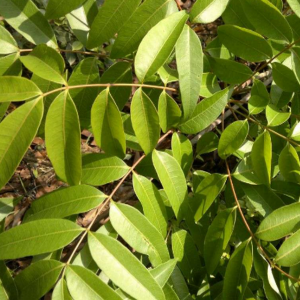Fisetin——Reduce inflammation and improve memory
Fisetin is a flavonoid. It is difficult to dissolve in water, carbon tetrachloride and petroleum ether. It is easily soluble in acetone and acetic acid. It is widely distributed in fruits and vegetables such as strawberry, apple, onion, cucumber and so on. It is widely distributed, cheap and easy to obtain, and has a wide range of pharmacological activities, such as anti-inflammatory, antioxidant, anticoagulant, antithrombotic, antispasmodic, and equivalent to treat diabetic kidney injury.
Fisetin can improve long-term memory. There are many signal pathways in human body. They are closely related to people’s long-term memory. However, with the age, some signal pathways will also slow down, so that people’s long-term memory will decline, and Fisetin can stimulate these signaling pathways, thus improving the long-term memory of human body.
Fisetin also has a certain effect on the treatment of liver and kidney disease. As we all know, aflatoxin is carcinogenic. If it cannot be metabolized from the human body for a long time, it will do great harm to the liver and kidney of the human body. And fisetin can inhibit the cytotoxicity of aflatoxin to a certain extent, so as to alleviate the hepatitis and kidney injury caused by the cytotoxin.
Fisetine also has strong antioxidant activity. If the free radicals in the human body are produced too much and can not be eliminated in time, it will attack the life macromolecules and various organelles in the body, cause various damages at the molecular level, cell level and tissue and organ level, accelerate the aging process of the body and induce various diseases. And antioxidant drugs can reduce the damage of oxygen free radicals on the vascular wall, so as to play the role of anti atherosclerosis. These effects are considered to improve people’s life to a certain extent, so fisetine also has the effect of prolonging life.

